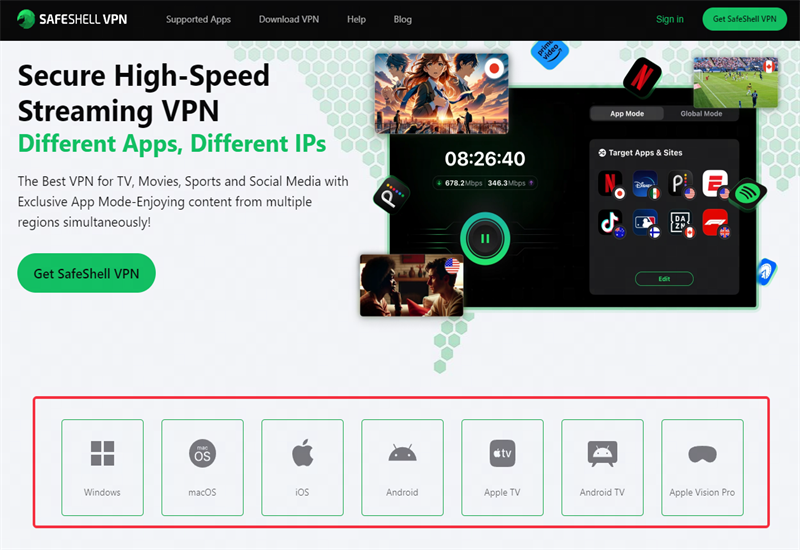DIY Cheap VPN: Worth It or Waste?
Is creating your own DIY cheap VPN worth the effort, or are you better off investing in a trusted service like SafeShell VPN? This question has echoed through the digital corridors of my mind as I've navigated the complex landscape of online privacy.
The Allure of DIY VPN Solutions
There's something poetically appealing about crafting your own digital sanctuary in this age of surveillance capitalism. A homemade VPN represents not just a technical achievement, but a declaration of independence—a small rebellion against the corporate giants that monetize our digital footprints.
As I explored the possibility of building my own VPN, I discovered that the process involves several critical components:
- Hardware selection (from repurposed computers to Raspberry Pis)
- Operating system installation (Windows, Linux, or specialized NAS options)
- VPN protocol implementation (typically OpenVPN or WireGuard)
- Server configuration and security hardening
The initial appeal is obvious: complete control over your data and potentially lower long-term costs. For the technically inclined, there's also the satisfaction of creating something functional from scratch—digital craftsmanship in its purest form.
The Hidden Complexities
Yet beneath this appealing surface lies a labyrinth of technical challenges that even experienced users might find daunting. Network segmentation , encryption implementation , and traffic routing aren't just buzzwords—they're critical security components that require precise configuration.
As I delved deeper into my research, I realized that DIY VPN setups often suffer from several fundamental limitations:
- Single-server constraints – Unlike commercial services with global networks, DIY solutions typically provide access to just one location
- Limited infrastructure resilience – No redundancy or load balancing to protect against outages
- Ongoing maintenance burden – Security patches and updates become your responsibility
- Absence of advanced features – Kill switches and leak protection require additional configuration
Perhaps most concerning is the security vulnerability landscape . A misconfigured VPN doesn't just fail to protect—it can create a false sense of security while actually exposing your data to greater risk.
The Professional Alternative
When comparing DIY options to professional services like SafeShell VPN, the differences become stark. While building your own VPN might save some money initially, the trade-offs are substantial:
| Feature | DIY VPN | SafeShell VPN |
|---|---|---|
| Setup time | Hours/days | Minutes |
| Technical expertise required | Substantial | Minimal |
| Server locations | Usually 1 | Multiple countries |
| Speed optimization | Manual | Built-in (ultra-fast) |
| Streaming compatibility | Limited | Excellent for TV/sports |
| Security updates | Manual | Automatic |
| Cost structure | Upfront hardware + ongoing server costs | Simple subscription |
What particularly impressed me about SafeShell VPN during my evaluation was its lightning-fast connection speeds . While my DIY experiments often resulted in noticeable slowdowns, SafeShell maintained impressive performance even during peak streaming hours—essential for anyone who prioritizes buffer-free entertainment.

The Streaming Consideration
One area where DIY VPNs particularly struggle is streaming service compatibility. Netflix, Disney+, and other platforms actively work to detect and block VPN connections, employing sophisticated methods that require equally sophisticated countermeasures.
Professional services like SafeShell VPN invest significant resources in staying ahead of these detection systems. Their dedicated streaming infrastructure ensures reliable access to geo-restricted content—something nearly impossible to achieve with a homemade solution.
For sports enthusiasts and TV fans, this difference isn't trivial. It's the distinction between watching the game live or missing it entirely due to technical limitations.
The Privacy Paradox
Perhaps counterintuitively, DIY VPNs can sometimes offer less privacy than professional alternatives. When you host your own VPN, your traffic patterns remain uniquely yours—making them potentially more identifiable through traffic analysis techniques .
Commercial VPNs like SafeShell mitigate this risk through IP commingling —blending your traffic with that of many other users to create a form of digital anonymity through crowds. This creates a protective effect that's difficult to replicate with a personal server.
The Economic Reality
While saving money is often cited as a primary motivation for DIY VPN projects, the economics deserve closer examination. Consider the total cost of ownership:
- Hardware costs (even repurposed equipment has value)
- Server hosting fees (if using a cloud provider)
- Electricity consumption (for home-hosted solutions)
- Your time value (setup, maintenance, troubleshooting)
When compared to SafeShell VPN's straightforward pricing model, the DIY approach often ends up costing more in the long run—especially when you factor in the opportunity cost of your time.
Finding Your Digital Path
As I reflect on my journey through the VPN landscape, I've come to appreciate that there's no universal answer to the DIY versus commercial debate. The right choice depends on your specific needs, technical abilities, and what you value most.
If you're a cybersecurity professional looking for a learning project or have highly specialized requirements, a DIY VPN might be worth exploring. The educational value alone can justify the effort.
For most of us, however, the calculus is different. We seek protection without complexity, privacy without technical burden. We want to stream our favorite shows without buffering and browse without worry.
In this context, services like SafeShell VPN offer compelling value—professional-grade security and performance without the technical overhead of building and maintaining your own infrastructure.
The Road Forward
The digital privacy landscape continues to evolve, with new threats and countermeasures emerging constantly. Whether you choose the DIY path or opt for a service like SafeShell VPN, the most important thing is making an informed decision that aligns with your personal needs.
Perhaps the most valuable insight I've gained is that privacy isn't binary—it exists on a spectrum. The question isn't whether you need protection, but what level of protection makes sense for your unique situation.
As we navigate an increasingly complex digital world, having tools we can trust becomes ever more essential. Whether crafted by your own hands or designed by privacy professionals, the shield that protects your digital life should be chosen with care.
After all, in this connected age, privacy isn't just a preference—it's a fundamental right worth protecting.



